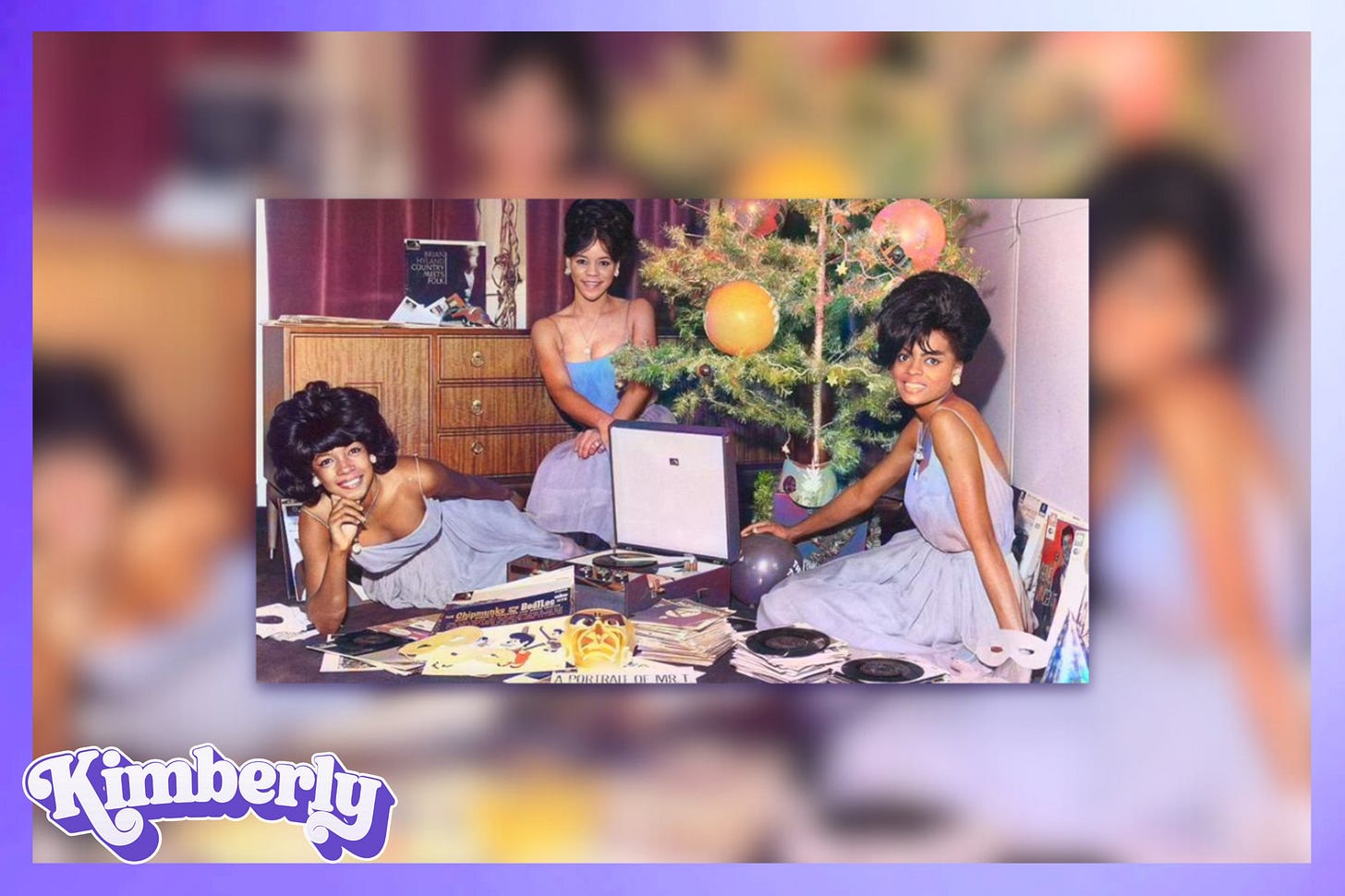A few months back, I mentioned the importance of preserving Black cultural memory and how I wanted to enroll my 12-year-old nieces in Negro School to make sure they know and appreciate the basics. I simply don’t think you can love Black people (which means you can’t love your Black self) if you don’t respect and value our cultural heritage.
I saw a few people say they wanted to sign up. Well, here y’all go! I’m not exactly a Christmas music girl, but I have a few favorites.
Note: This is part one because I got tired of talking halfway through.
Let me take you through a musical journey of Black Christmas classics that exemplify the Black American tradition:
Stevie Wonder's "Someday at Christmas" (1967) is a masterpiece of artistic excellence and social consciousness. Released during the Vietnam War, its opening lines critiquing militarism ("Boys play with toys, starting wars") spoke to the moment while remaining painfully relevant. Wonder's extraordinary vocal performance reminds us why he remains, in my estimation, one of the greatest artists the West has ever produced—a complete musician whose talent extends far beyond his legendary instrumental abilities.
Donny Hathaway's "This Christmas" (1970) radiates warmth through every note. The genius of Hathaway's composition, arrangement, and performance created one of the two seminal Black American Christmas songs (alongside The Temptations' "Silent Night").
A Warning: Don’t you dare mention Backflip Brown in the same sentence as Donny Hathaway around here.
The Emotions' "What Do The Lonely Do at Christmas?" (1973) subverted the typical Christmas narrative of universal joy, speaking instead of loss and isolation. This song has particular resonance for me, as the holiday season marks the anniversary of my father's passing in 2008. For years, I couldn't access the Christmas spirit, weighted by grief and family complications. It wasn't until my nieces came along, bringing new life and joy to our family celebrations, that I found my way back to the season's magic.
The Temptations' "Silent Night" (1970) skillfully fuses the sacred and the secular. Opening with the now-iconic "In my mind, I want you to be free" – a line absent from the traditional hymn—the group immediately transforms this European religious standard into a distinctly Black American spiritual expression.
The Jackson 5's "Give Love on Christmas Day" (1970) showcases young Michael Jackson's extraordinary talent – a 12-year-old delivering a vocal performance that still astonishes. The sophisticated arrangement, tempo changes, and rich orchestration exemplify Motown's artistic ambition and excellence.
Speaking of, I hope Diana Ross has a Merry Christmas.
As y’all can see, I’m particularly fond of the ‘60s and ‘70s, a fecund time for Black pop culture. These songs represent more than just holiday music—they're artistic artifacts that connect generations, preserving our stories and struggles while celebrating our joy and resilience.
As I watch my nieces navigate their world of modern decadence and social media-age concerns, I'm reminded that our responsibility is to help them understand both the weight of their inheritance and the lightness of their possibilities. 💜
P.S. I’m back outside again! Invite me to your things, and tell me what fun stuff to do, literally, anywhere. We on planes, too!













